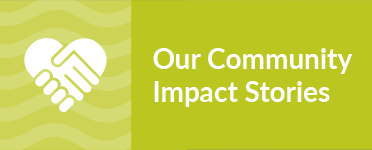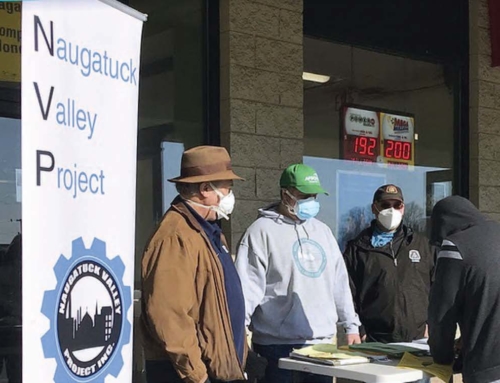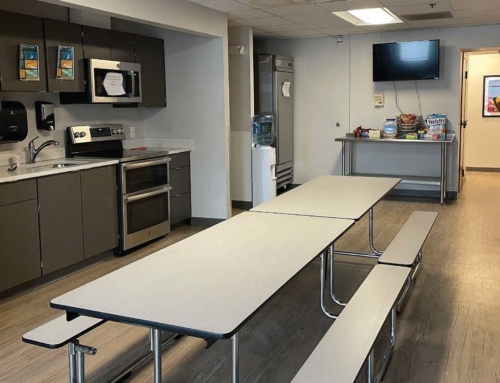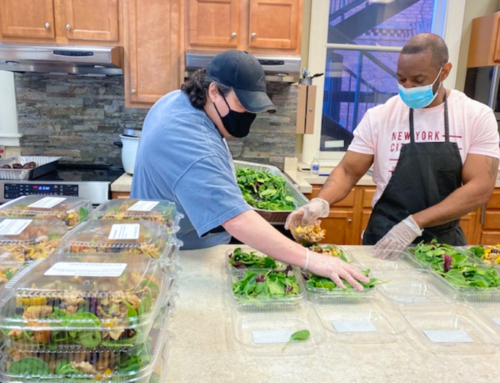
Telehealth provides a lifeline at Wellmore Behavioral Health
When the pandemic hit, Paul’s life began to unravel. He had to close his business. He began to self-medicate with alcohol and was hospitalized repeatedly. “I knew something was seriously wrong,” says Paul, who was ultimately diagnosed with bipolar disorder. Sometimes he couldn’t sleep. Other times he couldn’t get out of bed. He had virtually no income and felt hopeless. “I went from being on top of the world to flat broke,” he says.
Wellmore Behavioral Health provides mental health and substance abuse support to residents of 43 towns in Greater Waterbury and northwest Connecticut. At the outset of the pandemic, Wellmore had to shut their physical doors, but couldn’t turn their back on people like Paul. So they quickly devised a plan to connect with their clients via telehealth. To make it happen, they came to Connecticut Community Foundation, which offers grants earmarked to enable nonprofit organizations to purchase and deploy the technology they need to build their capacity and deliver on their missions.
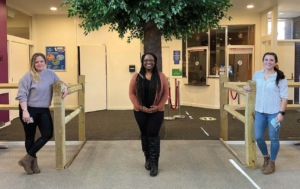
Charlaine St. Charles (center), team lead of Community-Based Programs at Family & Children’s Aid, with staff therapists Myriah Sipperly (far left) and Gabrielle Simonetti (far right) inside the agency’s Waterbury facility.
“We literally went from full face-to-face only services to a period where the only option was telehealth over the course of a few weeks for a staff of 260 and an active client base of approximately 5,000,” said Gary Steck, CEO of Wellmore. “To move from the ‘concept’ of telehealth to full implementation across our entire workforce in such a short period of time was just short of miraculous.” Within months, Wellmore had reached 2,768 clients and conducted 27,099 telehealth appointments.
As for Paul, when he became a Wellmore telehealth client, he began to find hope. “The people [at Wellmore] are like family,” said Paul, “and they treat you with such compassion, dignity and respect. I’ve never really had an experience like this before. It may have even saved my life.”
Technology keeps connections with Family & Children’s Aid
A technology grant from the Foundation also helped Family & Children’s Aid stay connected to the children and families who depend on it for mental health care, at a time when continuing support was critical.
When the organization had to close its offices at the outset of the pandemic, it saw a 90 percent drop in clients, just as families were struggling to manage forced isolation, disruptions in work, and distance learning—on top of their pre-existing challenges.
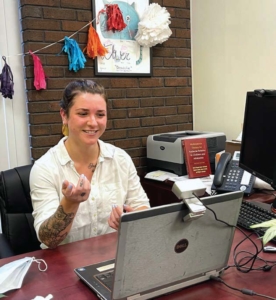
Gabrielle Simonetti, a therapist at Family & Children’s Aid, taking part in an online therapy session.
As Charlaine St. Charles, team lead of Community-Based Programs at Family & Children’s Aid explained, “During the initial lockdown, it was especially important to teach kids techniques and skills that helped them manage their own behaviors, identify their feelings, express their feelings in a healthy way.” The grant Family & Children’s Aid received—which supported the purchase of hardware and software to implement telehealth—helped make that possible by restoring connection with children and providing needed structure and support for parents navigating difficult terrain.
Sustainable CT sparks collaboration and builds community on Zoom
Sustainable CT works with local residents and municipal governments at the town level to engage the community, promote the health and well-being of current and future residents, and build the local economy sustainably and equitably. This work depends on close collaboration and consistent connection as volunteers and municipal officials identify, plan, and implement changes from a menu of options, with the support of 15 Sustainable CT Fellows who work throughout the state.
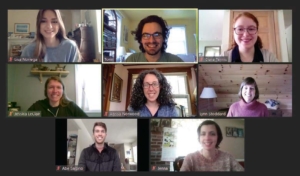
Sustainable CT staff during their weekly Zoom meeting.
COVID-19 restrictions grounded the fellows and brought the in-person meetings on which the work had relied to a screeching halt, just as municipalities needed the kind of ingenuity that local collaboration could bring to address town level needs that arose as a result of the pandemic.
The fix was simple, but powerful: Connecticut Community Foundation provided and funded four Zoom accounts to enable Sustainable CT to keep their work moving forward in an all-virtual environment, adapting and expanding as they went along. Sustainable CT was not the only nonprofit who benefited from receiving Zoom licenses from the Foundation. In fact, 49 Zoom licenses were provided to various nonprofits by the Foundation in 2020. These organizations used the Zoom accounts to host 4,284 meetings with 31,023 participants, as well as 90 webinars with 1,736 attendees.
Lynn Stoddard, executive director of Sustainable CT, recalls, “We started having virtual coffee hours every Friday for ten weeks from March through the end of May. Then the coffee hours evolved, inviting everyone from mayors and economic directors to local residents to tell their stories and share sustainability resources with a broader audience.” This, in turn, led to broader discussions about what towns needed. Coffee hours became facilitated dialogues, with breakout rooms where participants could talk about issues of common concern.
Through technology, the organization had connected people from across the state to share local challenges, solutions, and triumphs in ways that couldn’t have occurred so frequently or organically in the prior, offline setting. Sustainable CT had found its own sustainable innovation that will yield benefits in local towns and across the state.
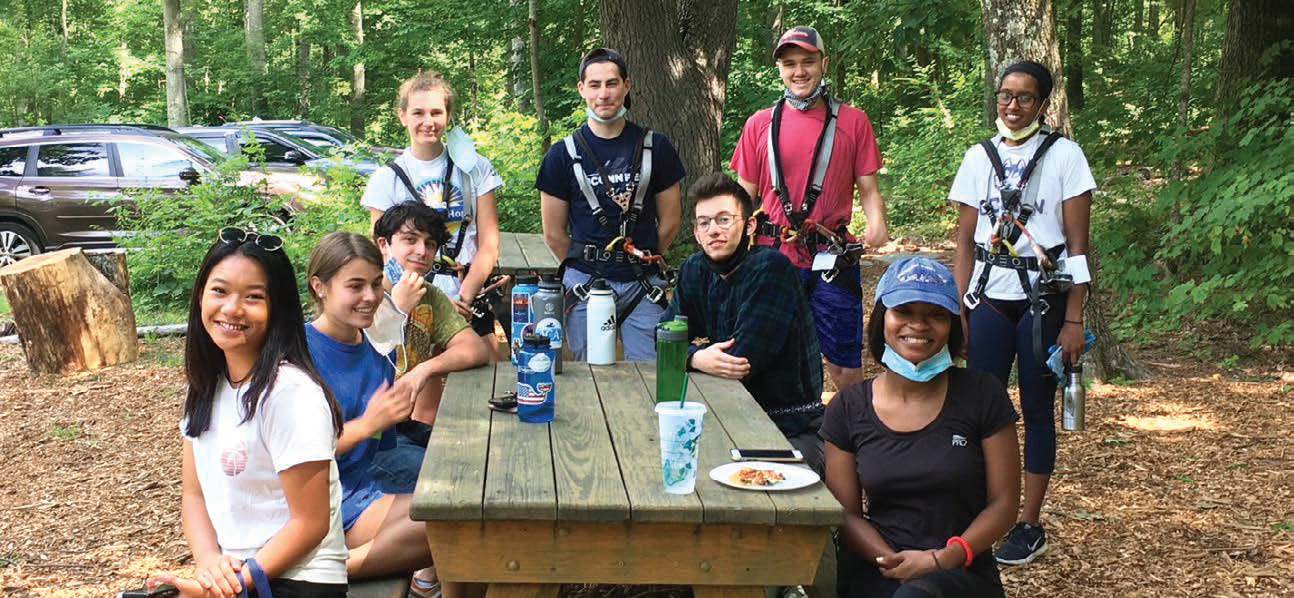
2020 Sustainable CT Fellows at an outing. Fellows relied on Zoom accounts funded by the Foundation throughout the year.


